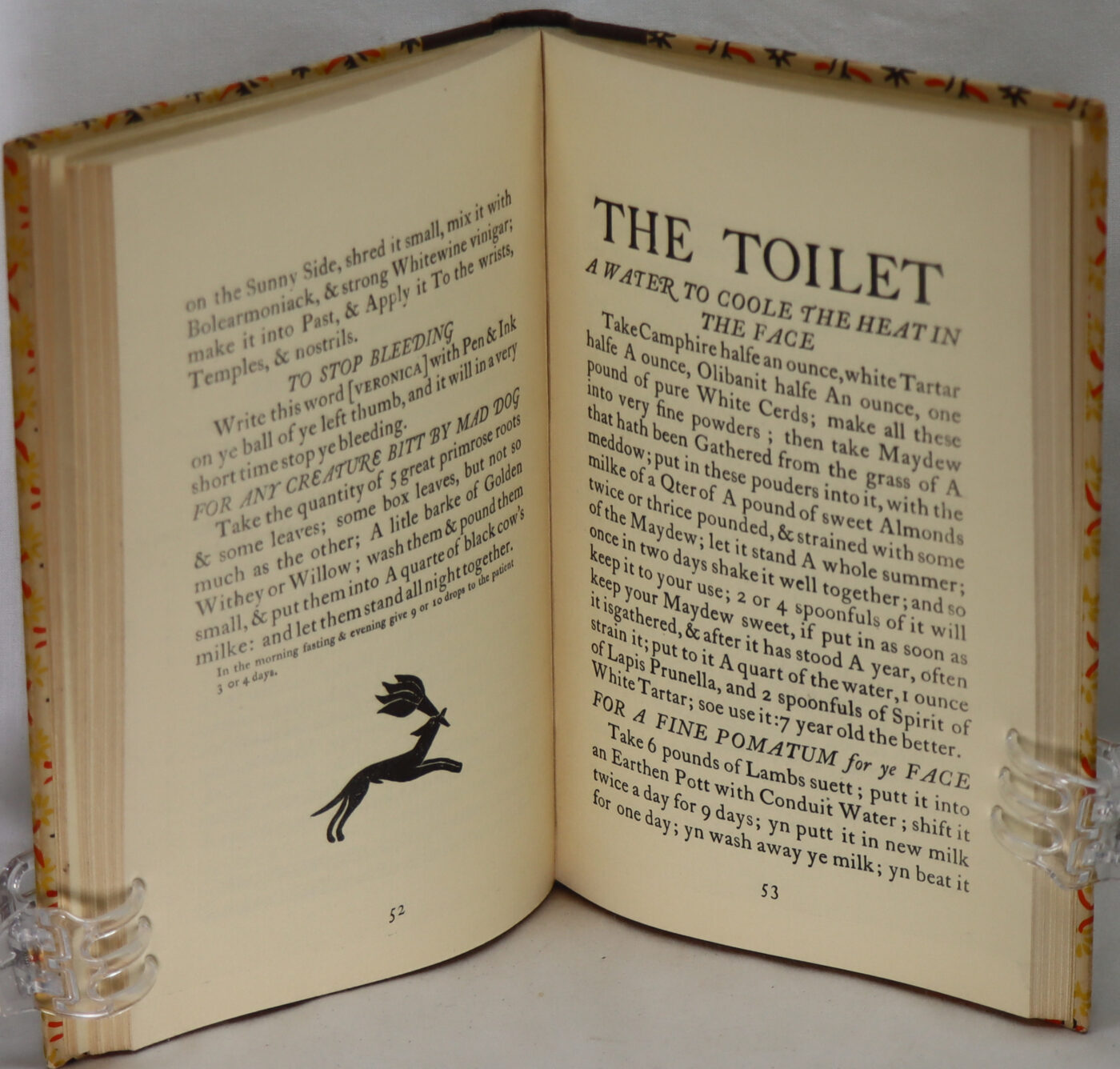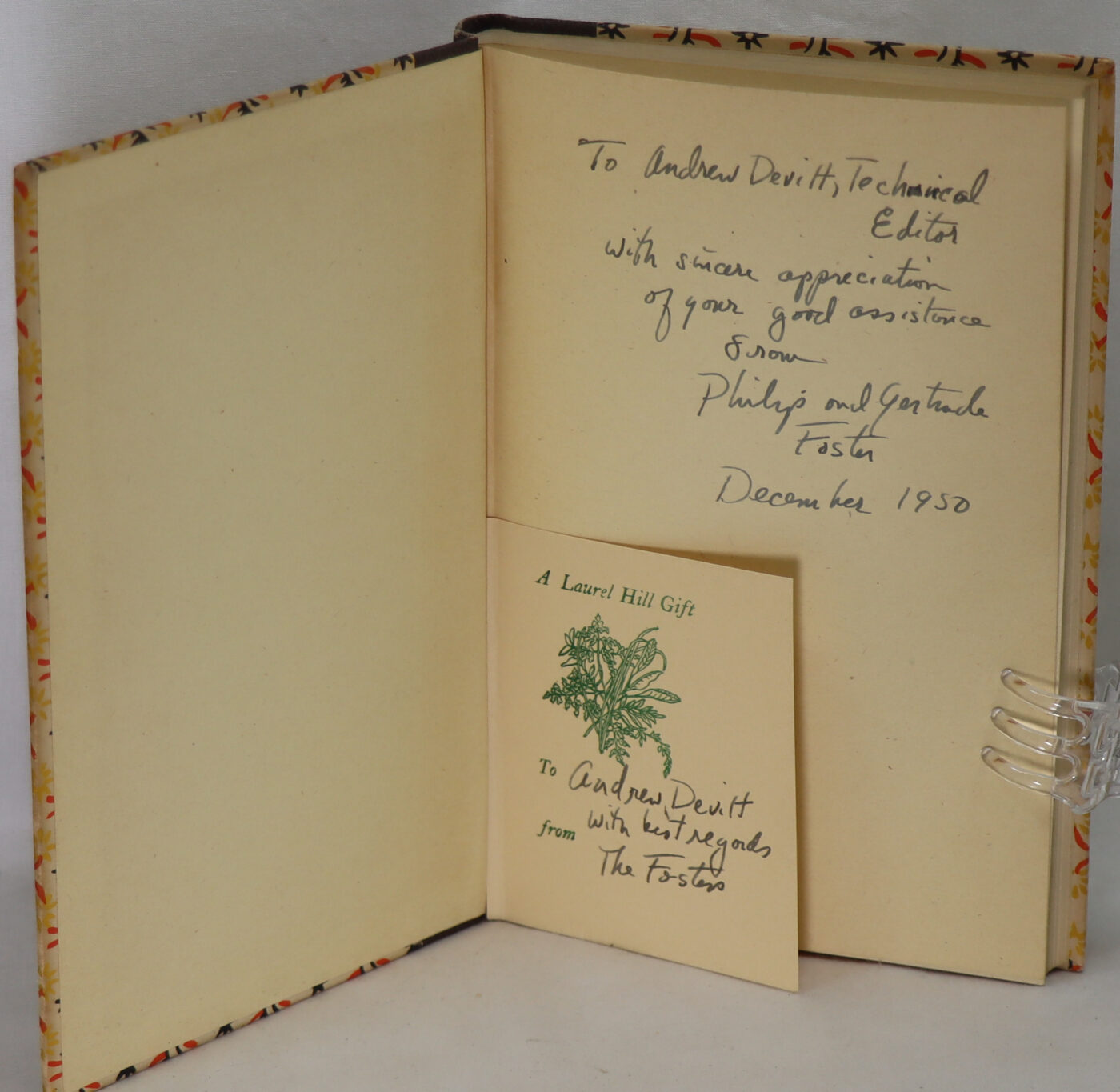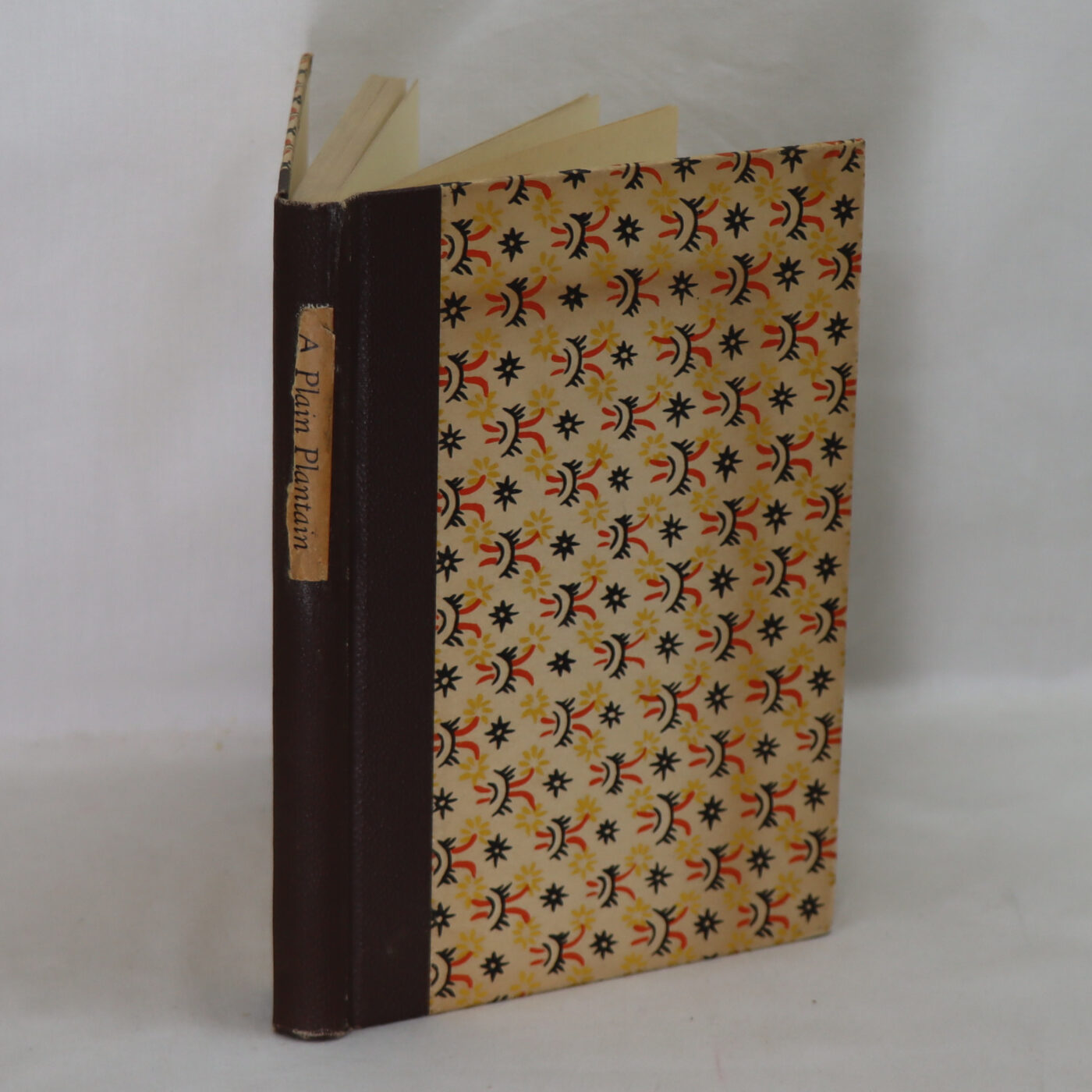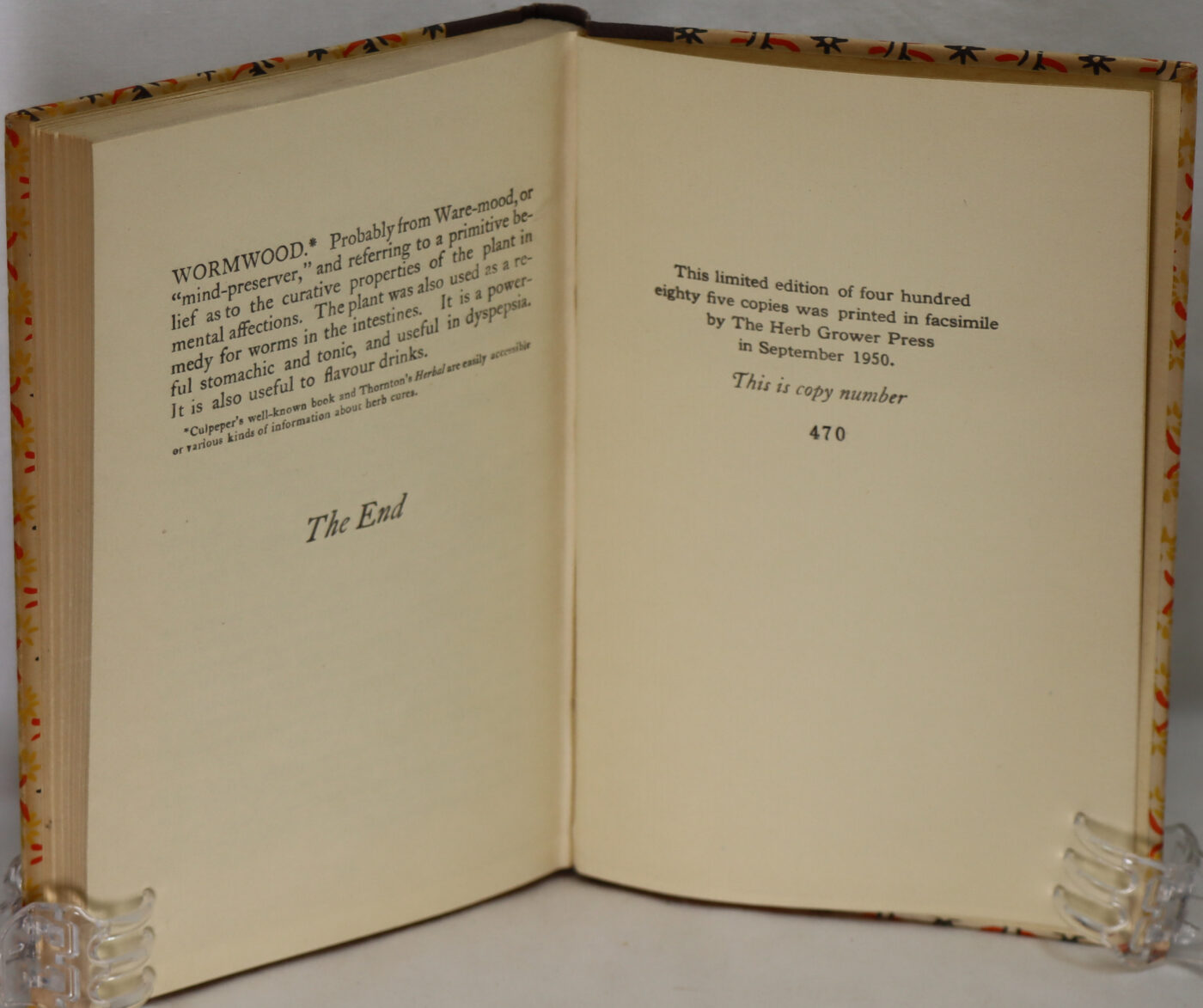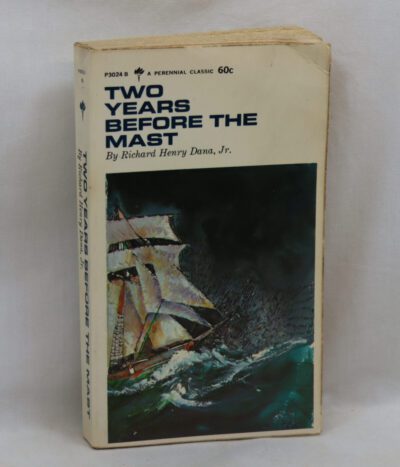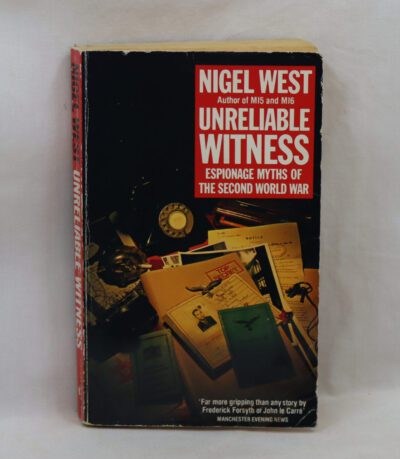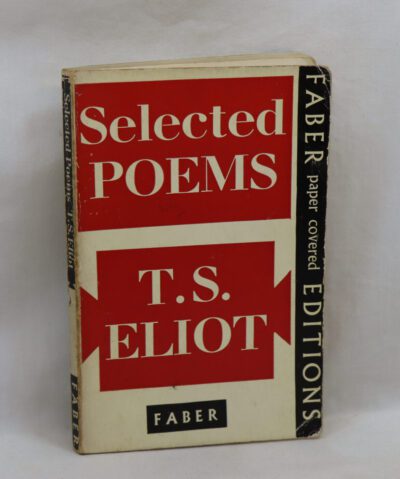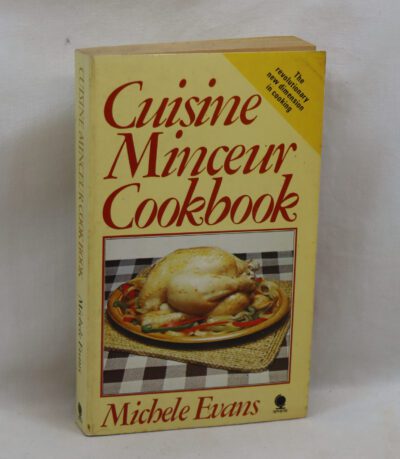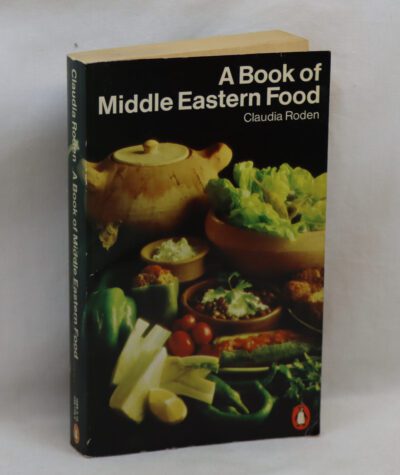A Plain Plantain.
By Madam Susanna Avery
Printed: 1950
Publisher: The Herb Grower Press. Connecticut
Edition: No.470 of Limited edition of 485.
| Dimensions | 12 × 18 × 1 cm |
|---|---|
| Language |
Language: English
Size (cminches): 12 x 18 x 1
Condition: Very good (See explanation of ratings)
Item information
Description
Hardback. Brown cloth spine with title. Cream, red and brown patterned boards. No.470 of Limited edition of 485.
We provide an in-depth photographic presentation of this item to stimulate your feeling and touch. More traditional book descriptions are immediately available
- Note: This book carries a £5.00 discount to those that subscribe to the F.B.A. mailing list
For conditions, please view our photographs. A nice clean rare copy from the library gathered by the famous Cambridge Don, computer scientist, food and wine connoisseur, Jack Arnold LANG. Jack founded the Midsummer House, Cambridge’s paramount restaurant. This dining experience is hidden amongst the grassy pastures and grazing cattle of Midsummer Common and perched on the banks of the River Cam. This was a favourite book of Jack’s mother of which 485 copies were printed by the publishers. A very good copy.
A 1979, New York Times article on the publishers: “HERBS are very popular at the moment,” said Gertrude Foster as she guided a visitor through her exquisite herb garden. “It’s very fashionable to give them as gifts, yet there’s only a small circle of people who really care about them, who take the time to read about them”.
For Mrs. Foster and her husband, Philip, herbs are a way of life. Their garden, down a box‐edged path from their farmhouse here, is the result of more than 30 years of herb growing. From it they derive inspiration and knowledge for the books they write and for the magazine and newsletters they edit, print and publish. They have been involved with herbs since the mid‐1940’s, when, as a young couple, they planted a few packets of seeds from the Foster family hardware store in New Jersey. “We were renting a small place near a highway,” Mrs. Foster recalled. “We put out a sign saying ‘Plants,’ but no one bought them. The average American knew nothing about herbs at that time. So we collected the seeds and sold those, for 10 cents a packet.” It was wartime, and supplies of seeds that used to come from abroad had been cut off; the Fosters began Laurel Hill Herb Farm, which they describe as the first place in this country to offer herb seeds exclusively. With mail orders came requests for information, and the Fosters wondered if there might be interest in a magazine; the mimeographed prospectus they sent out brought more than 300 subscribers. That was the start of The Herb Grower Press, the small business they had dreamed of starting. The first issue of their quarterly, The Herb Grower Magazine, begun in 1947, now has subscribers in all the 50 states and in Europe, India and South Africa. Articles deal with landscaping with herbs, with their lore and medicinal uses and with activities of people in the herb world. Each issue features a recipe column written by the Fosters’ daughter, Rosemary. After some years, Gertrude and Philip Foster were able to realize another dream: a move to northwestern Connecticut, an area he had loved since childhood. They rented a small house, dug up their plants (by then they had some 200 species of herbs) and moved themselves, their two children, their furnishings and their printing equipment. By that time, Mr. Foster had decided that doing business with printers was expensive and irksome and had started producing the magazine himself. “We had no money at all,” said Mrs. Foster, “and Phil had the inventiveness to be able to do it.” He still does all the printing in the basement and takes all the photographs and processes them himself. He has also reprinted a number of rare 18th‐ and 17th‐century herbals, almanacs that had been unavailable in modern times. Mrs. Foster is writer and editor for The Herb Grower Press; she has written numerous pamphlets and a book, “Herbs for Every Garden,” which was published by E. P. Dutton.
The Fosters’ garden was created in 1951 within sight of their farmhouse, which was listed in 1748 records as “the old farm in Canaan.” Mr. Foster designed it, and Mrs. Foster selected the plants. Describing each one, Mrs. Foster goes back and forth through the centuries, touching on history and myth, literature and anthropology.
Want to know more about this item?
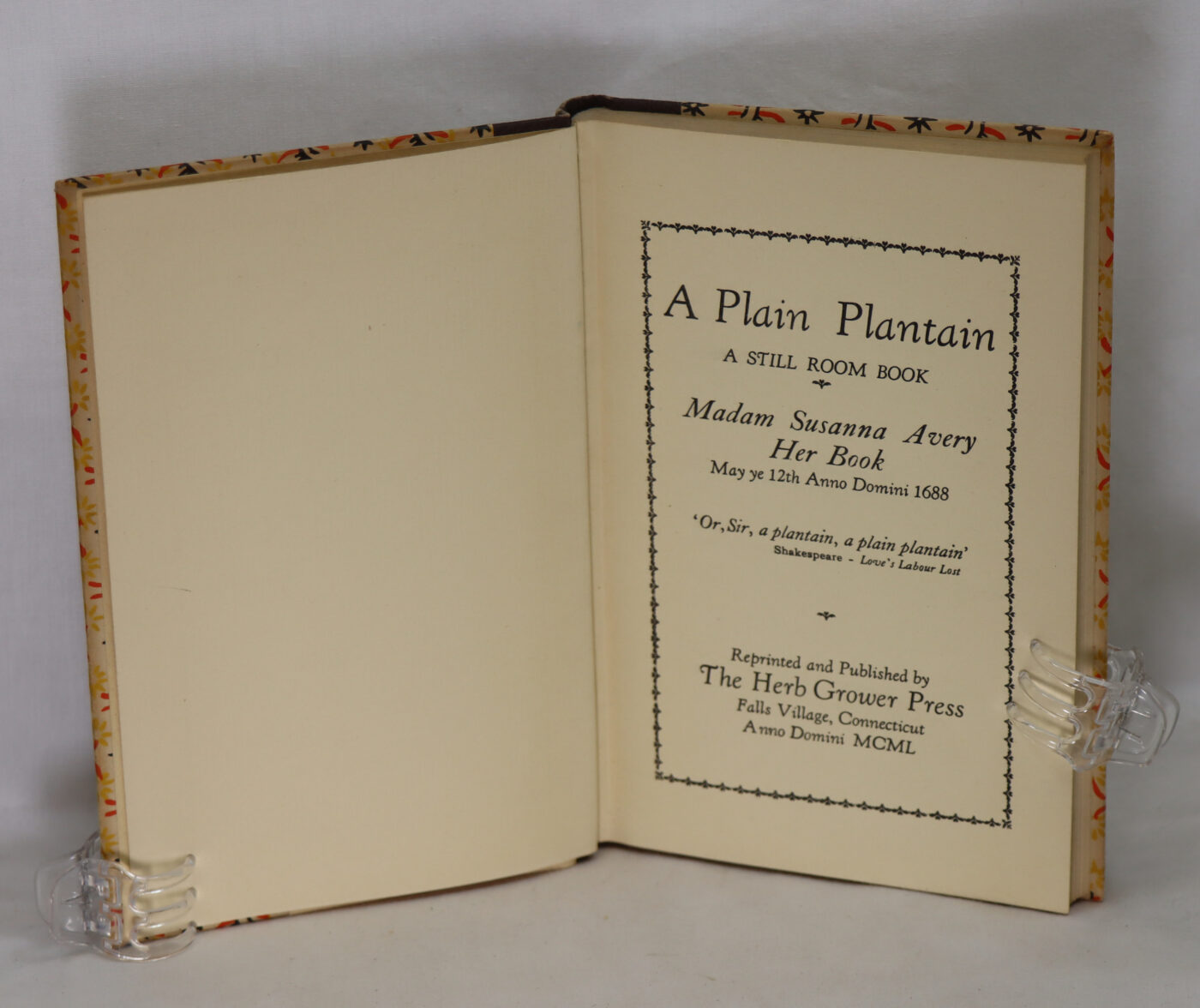
Related products
Share this Page with a friend

